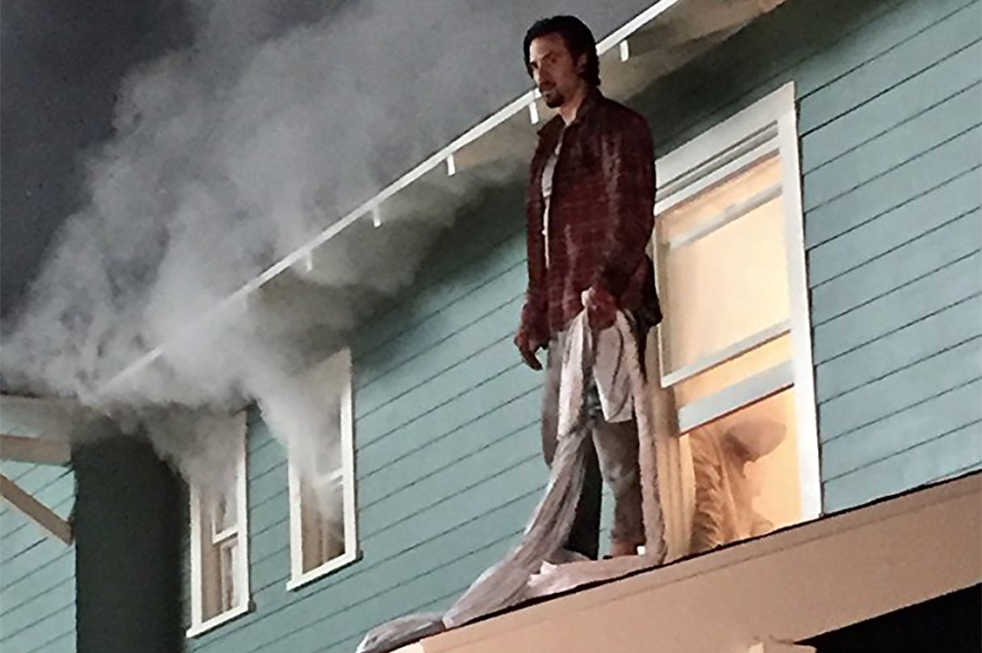After weeks of promotion, the “Super Bowl Sunday” episode of family drama “This Is Us” aired after the actual Superbowl LII. The episode was highly anticipated as the reveal of how patriarch Jack Pearson (Milo Ventimiglia, “Gilmore Girls”) died.
The only problem was that viewers basically already knew all the important details of his death: the cause of the fire, the general timing of his death and its deep effects on the lives of his wife and three children.
After waiting a season and a half for the big reveal, series creator and writer Dan Fogleman (“Tangled”) failed to justify the prolonged air of mystery around Jack’s death. With so many details already dropped over the past episodes, the emotional payoff of knowing the exact, specific cause of death was simply not powerful.
The breakout series “This Is Us,” which filled the “Parenthood”-shaped hole in many viewers’ hearts, is known for tugging at heart strings and requiring a box of tissues. Sometimes, its saccharine nature is redeemed by exploring complex family dynamics, like interracial adoption.
The series succeeds the most when it makes its characters relatable, not one-dimensional vehicles for emotional porn. However, dramatic irony establishes a distance between characters and viewers in this episode that even Mandy Moore’s stellar acting as Rebecca Pearson cannot save.
When the supposed twist of Jack not actually dying in the fire occurs, his emergence from the smoky door does not give audiences a deep sense of relief as it does to Rebecca, teenage Randall (Niles Fitch, “Mistresses”) and teenage Kate (Hannah Zeile, “Anger Management”).
Whether Jack had died in the fire or from smoke complications in the hospital, his death would still be sudden and partially caused by his stupidly self-sacrificing decision to go back into the house for the dog and mementos. Ultimately, the psychological effects on his family would have been the same.
The effects of Jack’s death, contributing heavily to Kate’s characterization especially, are much more interesting than the exact cause of his death. Therefore, the current timeline in the episode contains the most potentially cathartic scenes.
Twenty years after Jack’s death, each family member is processing in his or her typical way: “Kate wallows, Kevin avoids, Randall celebrates.” Rebecca cooks Jack’s favorite lasagna and watches the Super Bowl. As an introduction for new viewers who stuck around after the Super Bowl ended, each of the “Big Three” displays some of their most typical traits and personal challenges.
Surprisingly, Kevin’s (Justin Hartley, “The Young and the Restless”) attempt to deal with his grief seems the most potent, as his monologue to Jack’s tree — or at least a tree in the vicinity — marks a greater development in his character than Kate’s slightly Oedipal profession of her love to her fiance Toby (Chris Sullivan, “Guardians of the Galaxy, Vol. 2”) or Randall’s (Sterling K. Brown, “American Crime Story”) thinly veiled speech about a recently departed pet gecko.
Without Jack’s death hanging over the show, Fogleman seems to be ready to take “Us” in a new direction, or rather, to a new time: the future. In a welcome twist, the foster child who was assumed to be joining Randall’s family is actually being helped by future Tess (Iantha Richardson, “Benny Got Shot”), who is visited at work by a wizened Randall.
While managing yet another timeline may prove difficult, the opportunity to see another generation or decade of Pearsons could certainly bring fresh life to the show that has been treading creative water recently. With the obsession over the details of Jack’s death finally over, the show can refocus on character development.
